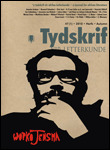In het land der Boeren: De receptie van de Anglo-Boerenoorlog in de Poolse jeugdliteratuur
DOI :
https://doi.org/10.4314/tvl.v47i1.50490Mots-clés :
Anglo-Boer War, youth literature, Polish reception of the Anglo-Boer War, literature and censorship, colonialismRésumé
In the land of the Boers: The reception of the Anglo-Boer War in Polish youth literature Polish writers and journalists frequently used the Anglo-Boer War (1899–1902) as a symbol of resistance against foreign rule in their country. Since 1795 till the end of World War I, Poland had been absent from the map of Europe, divided between the European powers of Prussia (later Germany), Russia and Austria. In this context, high hopes for independence were encouraged, among others, by the romantic patriotism of national uprisings. Foreign inspirations, such as the Anglo-Boer War, also embodied prospective freedom. Symbolic meanings of the Anglo-Boer War are most clearly visible in the youth literature of the time. At that period, youth literature was not only conceived as entertainment, but also as a messenger of contents forbidden from schools as a result of russification and germanisation policy. In this context, the Boer fight provided suitable ground for allusions to the contemporary political situation of Poland. Two factors facilitated the delivery of the idea of independence – the censorship was less strict with respect to the youth literature and, secondly, there existed strong Boer support on the side of the whole Europe. This paper aims at showing the ways in which the contents related to the state of subjugation, such as political repressions, forced migration, critique of the rulers, unfortunate national uprisings were all included in the books whose main plot took place in South Africa. Paradoxically, the symbolism of subjugation was accompanied by Polish colonial desires. The colonized Poles would eagerly recall the times of the Polish-Lithuanian Commonwealth, one of the largest European powers in between 1386–1772. In this context, the myth of the Polish border – the area of the eastern frontier colonized by the Poles, covering roughly present day Lithuania, Ukraine and Belarus was born. In this area, the Polish nobleman was viewed as an agent of acculturation, supposed to live in harmony with his neighbours and fight the barbarian Tatar hordes. The reality of the Commonwealth was, however, much less idyllic, much more brutal and colonial in its nature. Also this component of “Polish colonialism” was transported into the South African literary space.
Téléchargements
Références
...
Téléchargements
Publiée
Numéro
Rubrique
Licence
(c) Copyright Tydskrif vir Letterkunde 2010

Ce travail est disponible sous licence Creative Commons Attribution - Partage dans les Mêmes Conditions 4.0 International.


 https://orcid.org/0000-0001-6465-6584
https://orcid.org/0000-0001-6465-6584


.png)